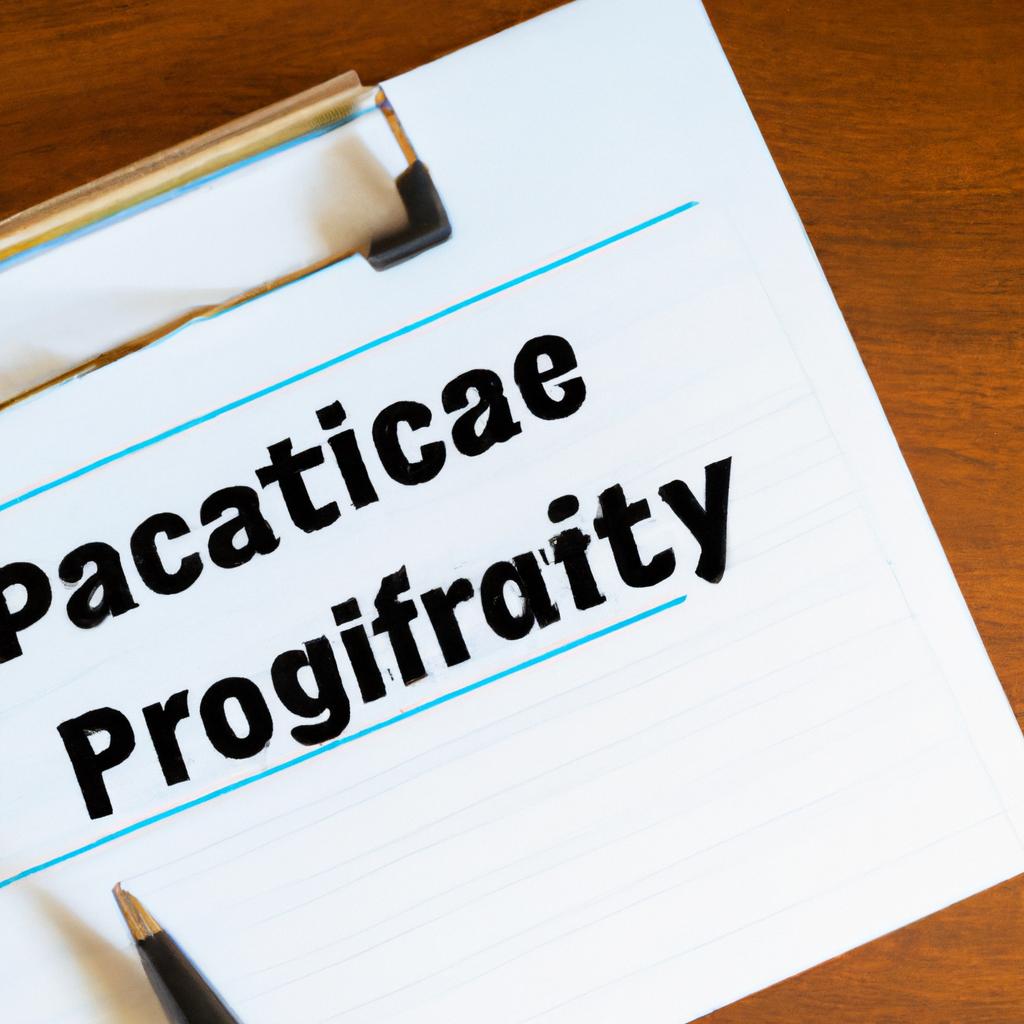When a loved one passes away, navigating the complex legal process of probate can be overwhelming. As experienced estate planning attorneys at Morgan Legal Group in New York City, we understand the importance of ensuring a seamless transition of assets and property in accordance with the deceased’s wishes. In this article, we will provide insights into the probate process, the role of the executor, and the steps involved in resolving the estate of a deceased individual. Let us guide you through this challenging time with clarity and professionalism.
Navigating the Complexities of Probate in New York
can be a daunting task for those unfamiliar with the intricate legal procedures involved. Understanding the nuances of New York probate laws and court requirements is essential to ensure a smooth and efficient process. From identifying and valuing assets to distributing the estate to beneficiaries, each step in the probate process requires careful attention to detail and adherence to strict legal guidelines.
One key aspect of probate in New York is understanding the different types of probate proceedings that may be required based on the size and complexity of the estate. Whether dealing with a small estate that qualifies for simplified probate procedures or a larger estate that necessitates formal probate administration, having a knowledgeable legal advocate by your side can help navigate the intricacies of the probate process. By working with an experienced probate attorney, individuals can ensure that all legal requirements are met, assets are properly accounted for, and the estate is distributed in accordance with the decedent’s wishes.
Understanding the Role of an Executor in Probate Proceedings
When it comes to the complex legal process of probate, the role of an executor is crucial in ensuring that the deceased’s wishes are carried out according to the law. An executor is appointed by the deceased in their will to oversee the distribution of assets, payment of debts, and other relevant responsibilities. It is important for the executor to have a clear understanding of their duties and obligations under probate law in order to efficiently manage the estate.
One of the key responsibilities of an executor is to locate and inventory all of the deceased’s assets and debts. This includes bank accounts, real estate, investments, personal property, and any outstanding loans or debts. The executor must also notify creditors, beneficiaries, and other interested parties of the deceased’s passing and the probate proceedings. Additionally, the executor is responsible for filing the necessary paperwork with the probate court, distributing assets to beneficiaries according to the will, and ensuring that all debts and taxes are paid off before the estate can be closed.

Maximizing Efficiency in Probate with Strategic Planning
Strategic planning is crucial in maximizing efficiency in the probate process. By carefully outlining a plan of action, individuals can ensure that their assets are distributed according to their wishes in a timely and cost-effective manner. One key strategy is to identify potential roadblocks in advance and develop contingency plans to address them. This proactive approach can help avoid delays and minimize disputes among beneficiaries.
Another important aspect of maximizing efficiency in probate is to work closely with experienced professionals who can provide guidance and support throughout the process. Collaborating with a knowledgeable estate attorney can help navigate complex legal requirements and streamline the administration of the estate. Additionally, utilizing technology tools and software can help simplify tasks such as document management and communication with all parties involved.

Ensuring Compliance with Probate Laws and Regulations
In probate, is essential to navigate the complexities of the legal process. At Morgan Legal Group, our team of experienced attorneys specializes in probate law, providing expert guidance to ensure all aspects of the probate process are handled effectively and in accordance with the law.
From filing the necessary paperwork to distributing assets to beneficiaries, our lawyers work diligently to ensure that all legal requirements are met. With a keen understanding of probate laws and regulations, we help our clients navigate the often intricate probate process, providing peace of mind and ensuring a smooth transition of assets.
Q&A
Q: What does it mean when a person’s estate is “in probate”?
A: When a person passes away, their assets and debts are typically collected and managed by a legal process known as probate.
Q: Why does an estate need to go through probate?
A: Probate ensures that the deceased person’s assets are properly distributed to heirs or beneficiaries and that any outstanding debts are paid off.
Q: How long does the probate process usually take?
A: The length of probate can vary depending on the complexity of the estate and any potential disputes among heirs. It typically takes several months to a year to complete.
Q: Can probate be avoided?
A: In some cases, probate can be avoided through proper estate planning, such as setting up a living trust or designating beneficiaries for assets like life insurance policies and retirement accounts.
Q: Are there any drawbacks to probate?
A: Probate can be a lengthy and expensive process, as court fees and legal costs can add up. Additionally, the proceedings are typically a matter of public record, which some people may find intrusive.
Q: How can someone navigate the probate process more effectively?
A: Hiring an experienced probate attorney can help streamline the process and ensure that all legal requirements are met. Additionally, keeping thorough records of the deceased person’s assets and debts can make the process smoother.
To Wrap It Up
As we conclude our exploration of the complex and often daunting world of probate, we hope this article has shed some light on the process and its significance. While navigating probate may feel like a journey through uncharted territory, remember that you are not alone. Seek guidance, ask questions, and arm yourself with knowledge to effectively navigate this crucial legal procedure. By understanding the intricacies of probate, you can ensure that your loved ones’ legacies are honored and their wishes are fulfilled. Remember, in probate, knowledge is power.
 In Probate: Understanding the Process and What it Means for Your Estate
In Probate: Understanding the Process and What it Means for Your Estate
In the unfortunate event of someone’s passing, one of the legal processes that may occur is probate. For many, this term can be confusing and intimidating. But understanding what probate entails is important for anyone who wants to ensure their estate is handled properly after they are gone. In this article, we will delve into the world of probate, covering what it is, how it works, and what it means for your assets and loved ones.
What is Probate?
Probate is the legal process of administering a person’s estate after they have passed away. This typically involves verifying the validity of the deceased’s will, paying off any outstanding debts and taxes, and distributing the remaining assets to the rightful beneficiaries. The process is overseen by a court and can be lengthy and costly, depending on the complexity of the estate and any disputes that may arise.
Do All Estates Go Through Probate?
Not all estates go through probate, as it largely depends on how the deceased’s assets were owned and titled. For example, assets held in a trust or with designated beneficiaries typically do not need to go through probate. Additionally, if someone passes away with very little assets or a small estate, their assets may be exempt from probate.
The Probate Process
If an estate does go through probate, it will typically follow these steps:
1. Filing the Petition: The first step is for a beneficiary or executor named in the will to file a petition with the court to open the probate process. This petition outlines the details of the deceased’s assets, debts, and beneficiaries.
2. Notifying Creditors and Beneficiaries: Once the petition is filed, the court will notify all known creditors and beneficiaries of the deceased’s passing. They will also publish a notice in the local newspaper to inform any unknown creditors.
3. Inventory and Appraisal: An inventory of all the assets in the estate will be conducted, and they will be appraised to determine their value. This process helps to ensure that all assets are accounted for and properly distributed.
4. Paying Debts and Taxes: Before any assets are distributed, any outstanding debts and taxes must be paid off. This may include funeral expenses, medical bills, and outstanding loans.
5. Distribution of Assets: Once all debts and taxes have been paid, the remaining assets will be distributed to the beneficiaries outlined in the will. This is typically done according to the deceased’s wishes but may sometimes be contested by creditors or family members.
6. Closing the Estate: Once the assets have been distributed, the estate will be closed, and the probate process will come to an end.
Benefits of Probate
While probate can seem like a daunting and time-consuming process, it does offer a few benefits:
1. Legal Protection: Probate provides legal protection to all parties involved. It ensures that the deceased’s wishes are carried out and helps prevent any disputes among family members and creditors.
2. Debts are Handled Properly: Probate ensures that any outstanding debts are paid off before the assets are distributed, protecting beneficiaries from any unexpected financial liabilities.
3. Fair Distribution of Assets: Probate ensures that assets are distributed fairly according to the deceased’s wishes and state laws. It also provides an opportunity for any disputes to be addressed and resolved in a legal setting.
Practical Tips for Managing Probate
If you find yourself in the position of being an executor or beneficiary of an estate going through probate, here are a few practical tips to help navigate the process:
1. Seek Legal Assistance: Probate laws vary by state, and the process can be complex. It is recommended to seek the assistance of an experienced probate attorney who can guide you through the process and ensure that everything is done correctly.
2. Be Organized: Keep all documentation and records related to the estate organized and easily accessible. This will help streamline the process and ensure that nothing is overlooked.
3. Communicate with Beneficiaries: Keeping beneficiaries informed throughout the probate process can help prevent any potential conflicts or misunderstandings. Be transparent and communicate any updates or changes to the estate.
In Closing
Probate is a necessary and important legal process that ensures a deceased person’s estate is handled properly and their assets are distributed according to their wishes. While it may seem overwhelming, understanding the steps involved and seeking appropriate legal assistance can help ease the burden and ensure a smooth probate process. Remember to stay organized, communicate with beneficiaries, and seek guidance when needed to navigate probate successfully.

